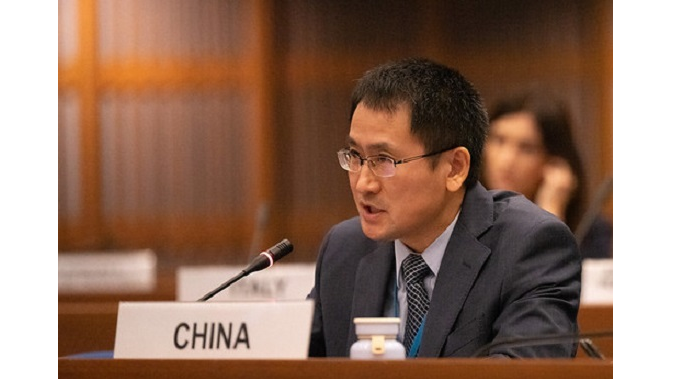Madame Chair, distinguished delegates,
Ladies and gentlemen,
The Asia-Pacific region, with its vast expanse, diverse environments, large population and unbalanced economic and social development, is the region most seriously affected by disasters. Disaster reduction is an important area for ESCAP, and it is also related to the implementation of sustainable development goals by all countries.
Disasters in China are diverse, geographically widespread, frequent and cause great losses. The Chinese government adheres to the people-centered approach, reforms and improves the emergency management system, and basically builds a nationwide system to motivate all sectors and pool all resources for rapid deployment in the vicinity, maintaining an overall stable situation of disaster prevention, reduction and relief across the country. From 2018-2022, the number of people killed or missing in natural disasters in China has dropped by 54 percent compared with five years ago. Construction of six national regional relief centers has begun, and the task of increasing the storage of 3 billion Chinese yuan ($USD 417 million) of centralized emergency supplies has been completed. After nearly three years of efforts, the first comprehensive national survey on natural disaster risks has been completed.

At the same time, China actively participates in regional cooperation on disaster reduction. The China-ESCAP Cooperation Program actively supports the ESCAP secretariat in carrying out programs in the field of disaster reduction, and Macao Special Administrative Region of China, as a member of the Governing Council of the Asian and Pacific Centre for the Development of Disaster Information Management (APDIM), continues to provide financial, technical and operational support. Through bilateral cooperation and the Regional Space Applications Program for Sustainable Development (RESAP) , China has dispatched rescue teams, provided relief supplies and shared remote sensing satellite data with disaster-stricken countries in the Asia-Pacific region, thus practicing the spirit of international humanitarianism and the concept of a Community of Shared Future for Mankind with practical actions.
Ladies and gentlemen.
In recent years, there have been frequent natural disasters caused by global extreme climate events, and the El Niño phenomenon will also have a serious impact on regional food security in coming years. The Global Development Initiative proposed by China has identified climate change and food security as key areas of cooperation, and has joined hands with all parties to carry out many practical initiatives. In April last year, the China-Pacific Island Countries Climate Change Cooperation Center was officially launched. In May this year, China and Mongolia reached a consensus on jointly setting up China-Mongolia cooperation center to combat desertification. China has signed 46 documents on South-South cooperation on climate change with 39 developing countries, contributed to the largest-ever replenishment of the Global Environment Facility (GEF), and made a cumulative contribution of $330 million to the Asian Development Fund (ADF) to support low-income countries in coping with COVID-19 pandemic and natural disasters, food shortages and other problems, and to promote post-pandemic recovery and sustainable development in the Asia-Pacific region.

China has taken note of the Asia-Pacific Disaster Report 2023. Regarding transformative adaptation, China believes that regional parties should, firstly, strengthen international and regional cooperation. They should make good use of regional cooperation platforms such as ESCAP to strengthen policy exchanges, experience sharing and capacity building. All parties are welcome to actively participate in the Belt and Road International Cooperation Framework for Disaster Risk Reduction and Emergency Management and related programs in the field of climate change of Global Development Initiatives.
Secondly, it is necessary to ensure sufficient and reasonable financial support. The Loss and Damage Fund established by the Twenty-Seventh Conference of the Parties to the United Nations Framework Convention on Climate Change should be utilized, and developed countries should expeditiously honor their financial and technological commitments related to climate change.
Thirdly, we should promote the application and innovation of space and digital technologies, make proper use of big data and artificial intelligence, improve early warning and rapid response systems, and enhance the efficiency of disaster monitoring and the accuracy of forecasting.
Thank you for your attention.
